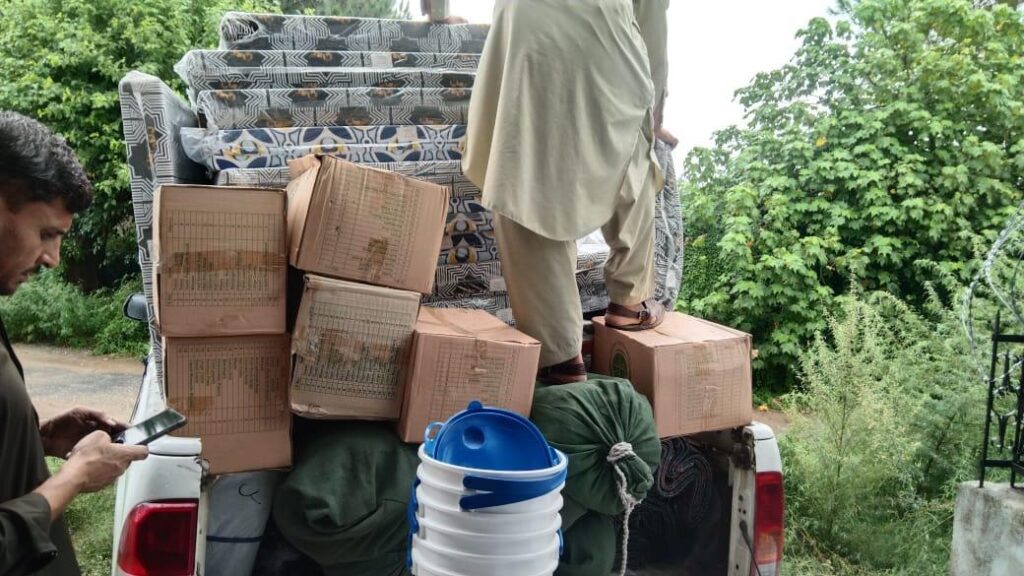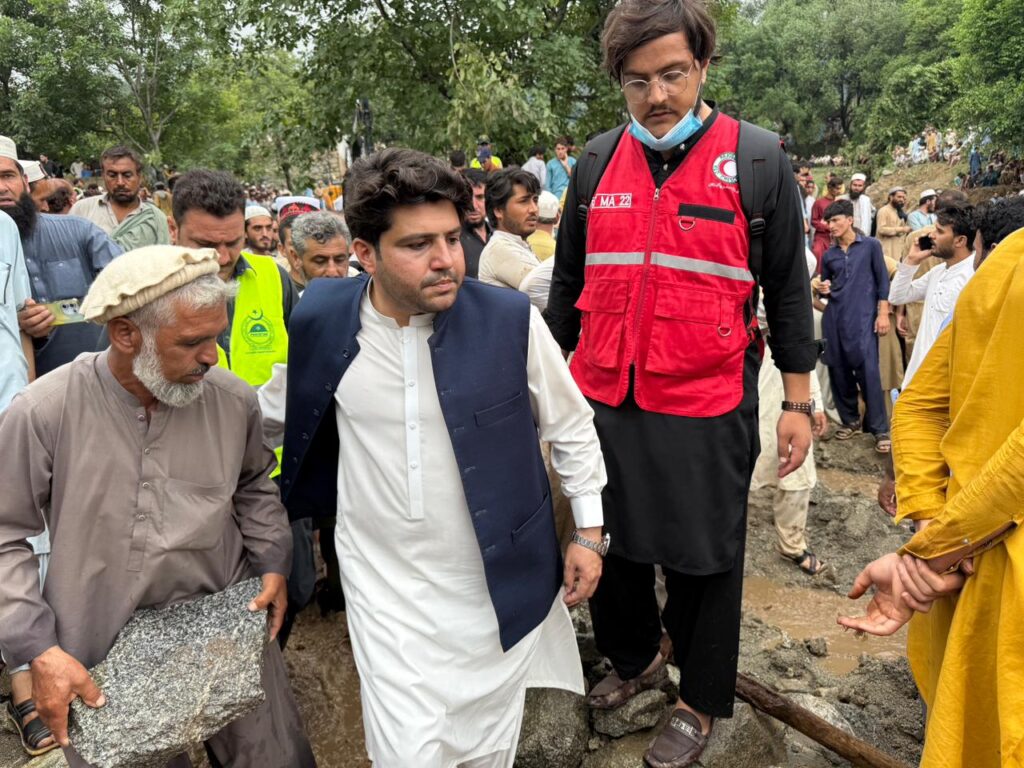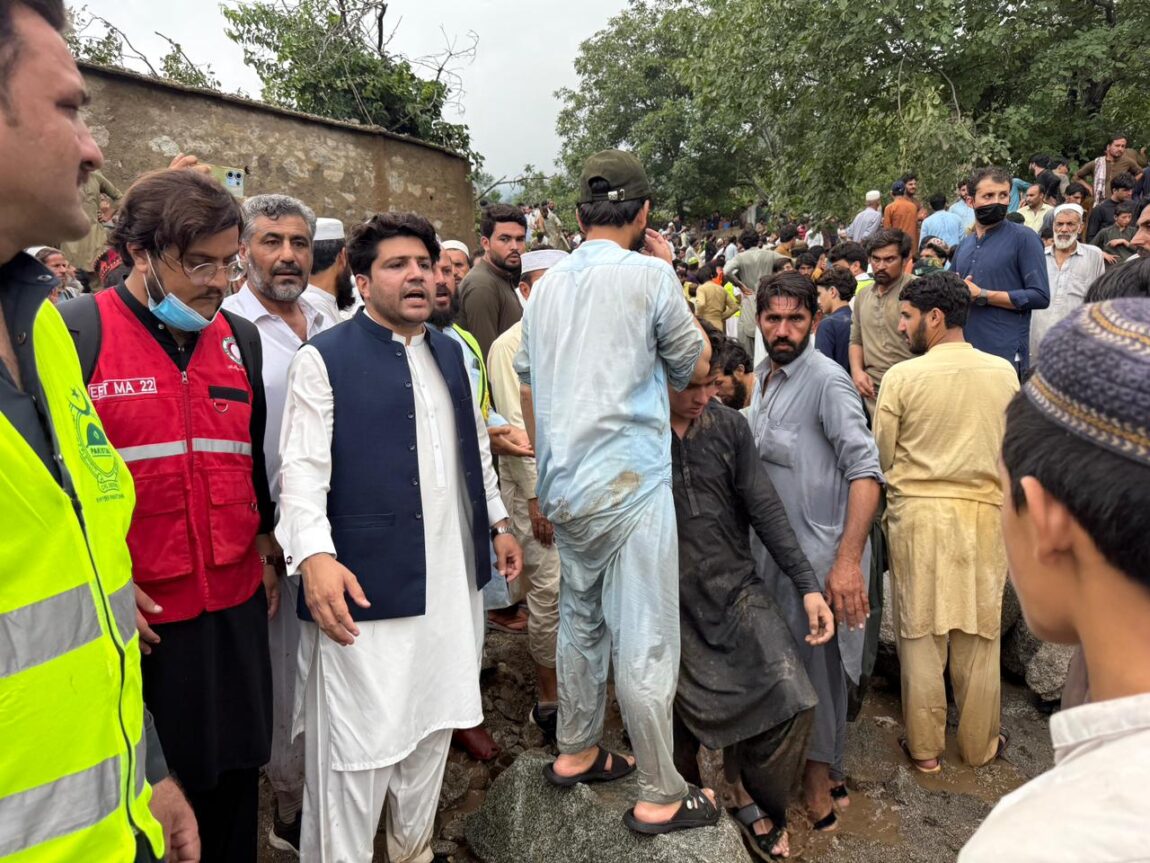By Anwar Zada Gulyar
Bajaur: The tribal district of Bajaur is passing through one of the most difficult and fragile phases in its history. On one hand, ongoing counter-terrorism operations have displaced thousands of families, forcing them into a life of hardship within their own homeland. On the other hand, nature’s fury—in the form of a devastating cloudburst—has deepened the wounds of this already suffering region. The sudden torrential rains not only claimed 21 precious lives but also turned dozens of houses and shops into rubble. Many families were left roofless, while others lost the very means of livelihood they had built through years of hard work.
At such a moment, the question was not merely how great the loss was, but whether the people and state institutions would stand shoulder to shoulder in the face of adversity. Encouragingly, Bajaur rose to this test and wrote a story in which compassion and the spirit of service stood out prominently. Senior district officials—Deputy Commissioner Shahid Ali Khan and Assistant Commissioner Khar Dr. Sadiq Ali—practically demonstrated that when public service is driven by sincerity and dedication, even seemingly impossible challenges can be overcome.

When the harrowing news of the cloudburst in Salarzai’s Jabrai area broke in the dead of night, Dr. Sadiq Ali wasted no time in dispatching rescue teams. However, floodwaters had washed away access routes, preventing vehicles and machinery from advancing. In such circumstances, despair is often inevitable, but Dr. Sadiq refused to give up. He mobilized local residents, inspired their confidence, and together they launched relief efforts on a self-help basis. This was the moment when the state and the people became true partners.
By sunrise, Deputy Commissioner Shahid Ali Khan and Dr. Sadiq Ali had trekked on foot through rugged mountain paths to reach the disaster site. This was unprecedented, as never before had both a DC and an AC traversed such treacherous terrain to personally reach an affected area. The two officers supervised the relief operation on the ground, working side by side with locals in recovering bodies and rescuing the injured. By the end of the day, 19 bodies had been retrieved and five injured were safely rescued. Another body was recovered the following day, along with the provision of medical teams and essential supplies for survivors.
Although a helicopter sent by the provincial government failed to reach due to an accident, this setback did not shake the resolve of the district administration. Shoulder to shoulder, the local people worked with the administration, and this spirit of solidarity became the greatest asset in those dark hours. The public not only appreciated the administration’s efforts but hailed them as exceptional service.
Meanwhile, the challenge of hosting thousands of families displaced by counter-terrorism operations was no less daunting. According to Dr. Sadiq’s estimates, some 45,000 displaced persons from Mamond Tehsil were accommodated in camps, where they were provided with shelter, food, and other necessities, while even more found refuge in hujras and homes across Bajaur. The administration ensured that no family was left unattended. Local welfare organizations and community members also upheld their traditions of generosity, playing an active role in relief efforts.

On the directives of Deputy Commissioner Shahid Ali Khan, Assistant Commissioner Dr. Sadiq Ali visited the camps daily, listening to grievances and ensuring their immediate resolution. His words reflect the spirit of service that guided these efforts: “It is my duty to serve the people and provide them with facilities. We are not doing anyone a favor; we are fulfilling our responsibility. Yet, when duty extends into humanity, it brings true peace to the heart.”
Comparing this scenario with the plight of IDPs in past crises, one realizes that this time the facilities provided in Bajaur were relatively better. In terms of relief delivery, Bajaur stands out among the districts of Khyber Pakhtunkhwa. This proves that when the state and the people stand united, even the gravest crises can be endured.
The recent days in Bajaur carry a powerful lesson—a lesson that rather than succumbing under the weight of adversity, unity, service, and sacrifice can transform hardship into strength. This is a chapter of courage and service by the people and administration of Bajaur that will be remembered as an example for years to come.

